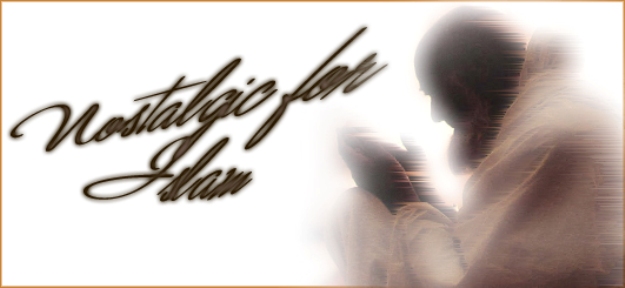
GAZA: 9 January
I'm using my brother's laptop to type these words - it has an hour left on the battery. The battery on my laptop has already died.
As I write this I can hear the sound of explosions around. Thirteen days on and I can't say that I'm getting used to the sounds of bombs and missiles hitting Gaza.
Today Islamic Relief was unable to distribute any aid as the bombing was so intense - vast parts of Gaza are now under thick black smoke.
Yesterday we were able to distribute 1,000 food parcels to local aid organisations who are helping us to reach desperate families - each parcel has enough food to feed a family of eight for one month.
This morning I heard about six people killed in the Qarrah area - all of them were over 50 years old. They were considered to be the elders in the community and they were respected and loved by all in Qarrah. People are in a state of shock.
Medical crisis
The whole health sector in Gaza is in meltdown. In the hospitals the doctors are sending home the severely injured - they have no choice due to the shortage of beds.
Many of those sent home are in urgent need of hospital treatment and anywhere else in the world they would be expected to stay in hospital for weeks. But Gaza is no ordinary place - it's a place full of deep pain and misery
The injured are being forced to return to their homes a few hours after arriving at the hospital and are forced to try and recover from their injuries as the bombs keep falling.
The shortage of doctors can be seen in the operating theatres. While a doctor is operating on a patient two more will be brought in for emergency surgery at the same time - it's an impossible situation.
It's not only the doctors; there is a severe shortage of nurses too. The hospitals asked student nurses in their third and fourth years to come and help, as well as other volunteers - such is their desperation.
It's important to remember that Gaza has been under siege for the last 18 months, so the hospitals were already suffering from a severe shortage of medical equipment.
Power fears
Al-Shifa is the largest hospital in Gaza and it just cannot cope with all the injured. In most hospitals around the world generators are used as emergency back-up if anything happens to the electricity.
In Gaza the generators are the main source of electricity for the hospitals and there is no back up. If the generators do not work properly there is nothing the doctors can do. This can happen during an operation.
Islamic Relief is going regularly to the hospitals and supplying them with medical equipment. But what will happen when the fuel runs out in Gaza and the generators no longer work?
Most people in Gaza are already without electricity as most do not have access to generators.
When I sit down to gather my thoughts and write these diaries my mind often goes blank because sometimes it's too difficult to process the full magnitude of the suffering in Gaza.
Often I struggle to find the words to describe what's happening here - I don't think there are any words in the dictionary that can accurately capture what's happening here

While I was writing this diary entry I received news that a Palestinian family had been killed in the northern Jabaliya refugee camp after their house was bombed.
Jabaliya is home to an estimated 125,000 people and is the most densely populated camp in Gaza.
They were a father, mother and son from the Aljaro family. Other members of the family had been injured.
But the news got worse: the father was the brother of my Islamic Relief colleague Alaa.
I tried to reach Alaa to check he was OK and pay my condolences but couldn't get through to him on the phone.
I finally received news that Alaa was OK. But what do I say to him when I see him?
Every day that passes brings more and more bad news and with every passing hour the human misery increases.
One minute we hear news that five people have been killed in a certain neighbourhood, then a few minutes later we receive more news that people have been killed in a different area.
It seems like Gazans are just becoming numbers.
Gazans are not just numbers, Gazans are very kind people who love life and love others.
Orphaned children
Every child that has died enjoyed playing, like other children across the world.
Every child that died had a family that loved them dearly.
Our aid team also learnt today that the fathers of three of the children in our Psychosocial Support program had been killed.
They are now orphans.
Islamic Relief runs a project with Gazan children who have been traumatised by conflict. It is funded by the Catholic Agency for Overseas Development (CAFOD).
Two thousand children are involved in the project, which aims to help youngsters deal with their loss and provide them with support and care.
I wonder what effect this conflict and losing their fathers will have on those three children in the long term.
One thing is for sure, when the bombing ends - and we pray for it to end now - this project will need to be one of our priorities.
Poor shelters
I've met a lot of children over the past 12 days and I can see the fear in their eyes.
The state of the shelters in which people are seeking refuge is dire.
There is no electricity, and no fuel for cooking. Neither is there any kind of heating to keep people warm in these cold winter nights.
The good news is that our relief teams continued with our distribution to three UN shelters, supplying people with hygiene kits and blankets.
We also prepared a list of medicines desperately needed by Gazan hospitals and are now working on trying to purchase the medication inside Gaza and co-ordinate the purchasing of aid from outside Gaza and work out how to get it into Gaza.

Today we had a few hours of calm. For three hours we could deliver aid without the worry of bombardment.
It was a busy day.
An Islamic Relief aid team went to the Paediatric Hospital to provide it with medical items, such as surgical sets, bandages and scissors among other items which are continuously required.
We also delivered soaps and other hygiene material and blankets to six UN shelters.
The people in the shelter were happy to see aid workers arriving with supplies, especially blankets as it's very cold here in Gaza.
During this three hours of calm we were also given a deeper insight to the misery on the streets of Gaza.
We visited a building near the International Committee of the Red Cross (ICRC) office in Gaza where 200 people were sheltering.
Many of the people there asked me if I could tell them where a safe shelter was - where they could go to stay safe with their loved ones. I had no answer.
Despite the temporary halt in the bombing I only met people, young and old, full of sadness and fear. Many people that I met looked bewildered and exhausted.
In one shelter I met a man called Abu Mohamed.
He had been forced to leave his home and was desperate to return.
"I refuse to go to a UN school as it is unsafe. Yesterday a school was hit and more than 40 were killed.
"I can't let my family and relatives be killed. I want all this to stop and go back home safely," he said.
Child's play
I also met a 12-year-old girl named Fatima. She had fled with 12 members of her family to be in a UN school.
Her home was partially destroyed after her neighbour's house was bombed.
Along with other children, she didn't feel safe but was trying her best to block out the bombing by playing with her cousins in the school yard.
Despite the dangers, the children of Gaza are resilient and some are determined to keep playing.
Our aid teams are working out how we can source more aid supplies into Gaza and deliver the aid we have inside Gaza.
We have precious minutes and seconds in the day to try to reach desperate people whose suffering continues.
Eleven days on and there is no end in sight

I'm absolutely exhausted. Despite the bombing last night I managed to get some sleep - I don't know how - I think my body just had enough
An Islamic Relief aid team went out and visited one of the UN schools that has been turned into a shelter for families displaced by the bombing.
What I saw was heartbreaking.
Before me were families who have had their homes destroyed and have lost everything.
Gaza is a very poor place and many people didn't have much before the bombing started. Many more are left with even less now.
The people I met told me that they had found themselves in the firing line and had no choice but to leave their homes.
I met a mother who was burning paper in order to boil water for her child. She was doing this because she had no milk - maybe she could fool her hungry baby with the warm water?
I was surprised at the amount of women and children I saw in the school - and worried too.
Suffering
People are exhausted, traumatised and they are surviving on a limited amount of food - there simply isn't enough.
I found it very hard to see people suffering like this, especially the children.
At Islamic Relief we have decided that we have no choice but to deliver food to people - no matter what the dangers, and there are plenty of dangers in Gaza.
As aid workers we can not stand by and watch as people suffer - they have nothing and we have to do something to help them.
There are around 500 people sheltering in the school and we are also preparing to provide people with hygiene kits, which contain simple things like soap which are important in preventing the spread of disease.
Seeing women and children living in these kind of conditions is unbearable.
Many of the children had walked long distances to reach the schools.
Their parents had thought they would be safe here.
The children are tired and hungry and do not know why they have been made to leave their homes and live in classrooms, like most Gazans they are cold and hungry and bewildered by the events of the past 11 days.




